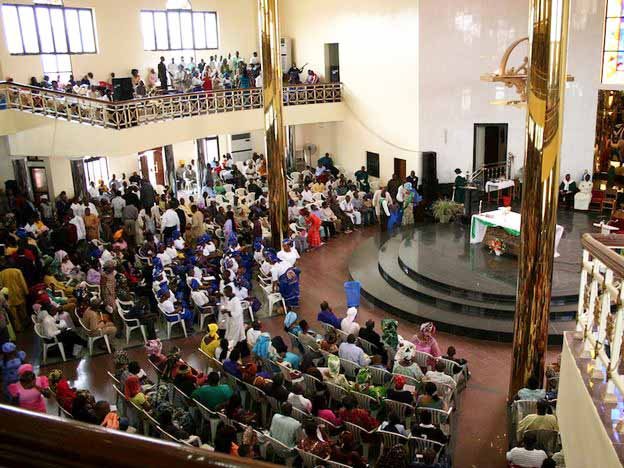“And the things that thou hast heard of me… the same commit thou to faithful men, who shall be able to teach others also.” – 2 Timothy 2:2
What Kind of Church Are We Called to Plant?
When we talk about church planting, we must ask: What kind of church does the Lord want us to build? The answer is clear—God desires a reproducing church. This is not just a human idea; it is a divine calling. God’s will is that every local assembly should grow, mature, and then multiply by birthing another church. Sadly, in many cases, churches are planted but fail to carry forward the momentum to plant others. It often takes a completely new push to birth another church, which is not how God designed the process.

God is not just calling us to plant a single church, but to plant a church that will mature and reproduce. To plant a church that does not grow and birth others is like a relay runner who refuses to pass the baton—the race is stalled, and progress is halted.
Therefore, every church planter and sending church must carry this spiritual DNA of reproduction and transfer it into the life of each new congregation. Reproduction should be part of the vision, structure, and teaching of every new church from day one.
1. MATURING CONVERTS
(Matthew 28:20; Acts 2:42–47)
One of the foundational responsibilities of a church planter is to ensure that the converts in the new church grow into spiritual maturity. Church planting becomes meaningful and fruitful when the members of the congregation begin to mature and take up the work of ministry.
A church filled only with spiritual babies, even after many years, will eventually struggle. It becomes a burden to the leadership and a hindrance to the fulfillment of the Great Commission. Immaturity among members limits personal growth and weakens the outreach capacity of the church (Hebrews 5:11–14; 1 Corinthians 3:1–3).
To avoid this, the following spiritual disciplines and developmental steps must be emphasized with great intentionality:
- A Clear Experience of Salvation (Titus 3:1–7) – Members must be genuinely born again.
- Growth and Spiritual Development – There must be intentional teaching and mentoring.
- Participation in Christian Fellowship (Acts 2:42–47) – Believers must be connected to the body.
- Water Baptism Classes – Teaching the importance and meaning of baptism.
- Bible Study and Personal Prayer Life – Developing daily spiritual habits.
- Training for Christian Service (2 Timothy 2:1–2,15) – Preparing believers to serve effectively.
- Discipleship Classes – Rooting new believers in the foundational truths of the Christian faith.
All of these form a systematic spiritual formation process designed to move converts from salvation to service, and eventually into leadership. This leads to a strong, fruitful, and mature church.
2. MATURING CHURCHES
(Luke 12:32; Acts 2:47; Acts 20:28–31; 1 Peter 5:1–5)
God is not pleased with stagnant, declining, or dying churches. It is never His will for a church to be spiritually barren or inactive. His desire is for churches to grow in all aspects—spiritually, numerically, financially, and structurally. A maturing church is one that is alive with the presence and power of Christ. As Jesus said, “I will build my church,” and part of that building includes quality and quantity growth.
Each church that is planted must be given the necessary tools, guidance, and structure to become self-governing, self-supporting, and self-propagating. The local church should not just have a vibrant spiritual life within but must also extend that life into its surrounding community through ministry and outreach.
A mature church will:
- Engage in ongoing evangelism.
- Retain a clear vision for church planting.
- Build strong internal leadership structures.
- Ensure financial independence and healthy administration.
- Become a spiritual light to its region.
When churches are strong and healthy, they can be a launching pad for other new works. This is the principle of multiplication.
3. THE REPRODUCING CHURCH
(Genesis 1:11–12, 21–25)
Just as God designed living things to reproduce “after their kind,” so every local church is meant to give birth to another church. Reproduction is a divine pattern embedded in the DNA of the Kingdom of God. A healthy church must aim to be a church-planting church.
Recommended Reading
The Process Of Church Planting
The Book Of Elders On Marriage
How the Holy Spirit Works in Our Lives
30 Tips To Creating An Amazing Marriage
Here are some key principles to help every local assembly become a reproducing church:
- Have a clear mission policy and church planting statement.
- Regular preaching and teaching on evangelism and the Great Commission.
- Constant communication of the church planting vision to members.
- Foster a deep burden and passion for the lost.
- Develop and train leaders specifically for missions and outreach.
- Allocate budget for evangelism and church planting projects.
- Emphasize a mindset of reproduction, not just maintenance.
- Teach strong biblical stewardship and spiritual fruitfulness.
- Understand and prepare for the challenges of the times.
When these values and strategies are repeatedly taught and modeled, the fire of evangelism and church planting will burn in the hearts of the congregation. Communities will be reached, souls will be saved, and God’s Kingdom will expand.
A CALL TO FAITHFUL REPRODUCTION
The time is short. The Lord is coming soon. We must not be distracted or entangled by the failures, delays, or setbacks of the past. Let us not tolerate anything that has led to stagnation or inconsistency in previous efforts. Instead, let us renew our commitment to build churches that grow and reproduce.
Let us labour faithfully in the Lord’s vineyard—not just to plant churches, but to raise up mature, fruitful, and multiplying congregations that will shine as lights until the Lord returns.
“Be ye steadfast, unmovable, always abounding in the work of the Lord…” – 1 Corinthians 15:58
